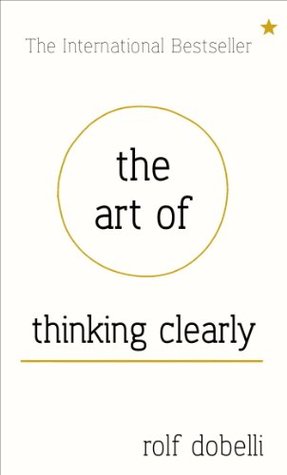More on this book
Community
Kindle Notes & Highlights
Well, it makes us believe we are better predictors than we actually are, causing us to be arrogant about our knowledge and consequently to take too much risk.
They reel off eloquent words as if reading from a script.
Unfortunately, it is increasingly difficult to separate true knowledge from chauffeur knowledge
The illusion of control is the tendency to believe that we can influence something over which we have absolutely no sway.
Therefore, focus on the few things of importance that you can really influence.
Yes, many rats were destroyed, but many were also bred specially for this purpose.
people respond to incentives by doing what is in their best interests.
What is noteworthy is, first, how quickly and radically people’s behaviour changes when incentives come into play or are altered and, second, the fact that people respond to the incentives themselves and not the grander intentions behind them.
Good incentive systems comprise both inte...
This highlight has been truncated due to consecutive passage length restrictions.
forget hourly rates and always negotiate a fixed price in advance.
‘Never ask a barber if you need a haircut.’
NEVER JUDGE A DECISION BY ITS OUTCOME
Let’s call him the success monkey.
we tend to evaluate decisions based on the result rather than on the decision process.
You can only really judge a surgeon if you know something about the field, and then carefully monitor the preparation and execution of the operation.
In other words, you assess the process and not the result.
A bad result does not automatically indicate a bad decision and vice versa.
And yet, selection is the yardstick of progress.
With such a wide range, customers could not come to a decision, so they bought nothing.
Second, a broader selection leads to poorer decisions.
Finally, large selection leads to discontent.
Aiming for this, given the flood of possibilities, is a form of irrational perfectionism.
Instead, learn to love a ‘good’ choice.
‘There’s nothing more effective in selling anything than getting the customer to believe, really believe, that you like him and care about him.’
According to research, we see people as pleasant if A) they are outwardly attractive, B) they are similar to us in terms of origin, personality or interests, and C) they like us.
Compliments work wonders, even if they ring hollow as a drum.
Never will you see a stone-faced, wounded guerrilla fighter staring at you from billboards – even though he also needs your support.
Amiability works better than bribery.’
We consider things to be more valuable the moment we own them.
In other words, if we are selling something, we charge more for it than what we ourselves would be willing to spend.
We can safely say that we are better at collecting things than at casting them off.
members of a close-knit group cultivate team spirit by (unconsciously) building illusions.
If you ever find yourself in a tight, unanimous group, you must speak your mind, even if your team does not like it.
This illustrates that we respond to the expected magnitude of an event (the size of the jackpot or the amount of electricity), but not to its likelihood.
In other words: we lack an intuitive grasp of probability.
To us, 0% risk seems infinitely better than a (highly improbable) 1% risk.
Each farm would have to function like a hyper-sterile computer-chip factory, and the cost of food would increase a hundredfold.
WHY THE LAST COOKIE IN THE JAR MAKES YOUR MOUTH WATER
Scarcity Error
Rara sunt cara, said the Romans. Rare is valuable.
Whenever she has an interested buyer who cannot decide, she calls and says ‘A doctor from London saw the plot of land yesterday. He liked it a lot. What about you? Are you still interested?’ The doctor from London – sometimes it’s a professor or a banker – is, of course, fictitious. The effect is very real, though: it causes prospects to see the opportunity disappearing before their eyes, so they act and close the deal.
the attraction is that they are in short supply.
when we are deprived of an option, we suddenly deem it more attractive.
It is also known as the Romeo and Juliet effect: because the love between the tragic Shakespearean teenagers is forbidden, it knows no bounds.
In conclusion: the typical response to scarcity is a lapse in clear thinking. Assess products and services solely on the basis of their price and benefits. It should be of no importance if an item is disappearing fast, nor if any doctors from London take an interest.
The detailed description enticed us to overlook the statistical reality.
investigate the most likely ailments before you start diagnosing exotic diseases, even if you are a specialist in that.
The gambler’s fallacy leads us to believe that something must change.
Complex feedback mechanisms in the atmosphere ensure that extremes balance themselves out. In other cases, however, extremes intensify.
As comforting an idea as it is, there is simply no balancing force out there for independent events. ‘What goes around, comes around’ simply does not exist.


